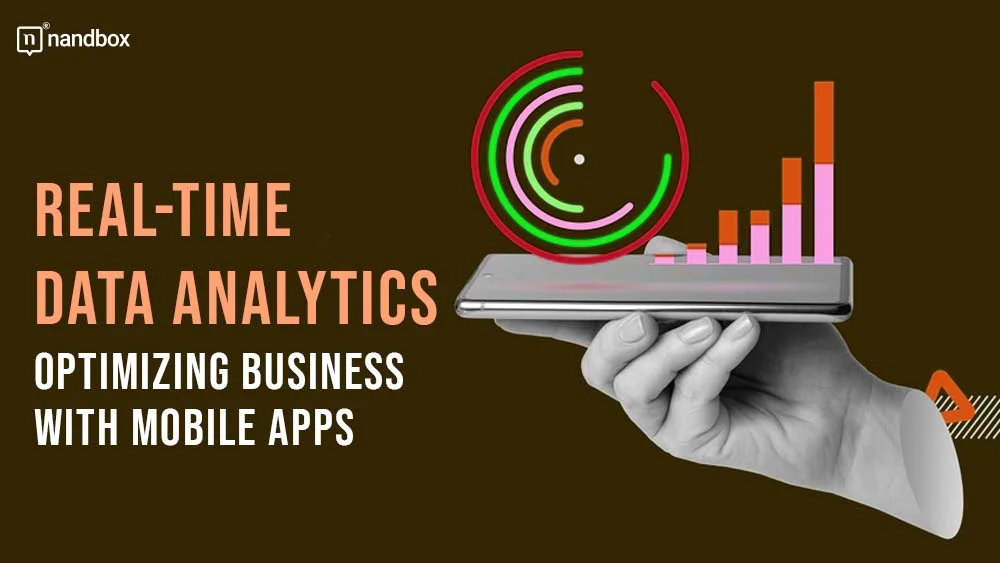Over the past two decades, mobile apps have significantly improved the way businesses operate. With the advent of smartphones came the development of a whole host of different mobile apps. Initially starting with simple utilities and games, mobile apps have evolved into sophisticated tools that are essential to business strategies. They enable real-time communication between employees and customers, they can help streamline processes, and they provide immediate access to information, enhancing productivity and decision-making.
With this immediate access to information comes the opportunity for real-time data analytics. This gives business owners the opportunity to see the entire picture of their business wherever they are in the world and gives employees more freedom to be able to do their job and access information. This has leveled up the productivity of a lot of companies by improving many business processes, and this blog will dive into exactly how this has occurred.
Importance of Real-Time Data Analytics
The ability to analyze and act upon data in real time is increasingly crucial for businesses aiming to maintain a competitive edge, and having to rely on manual data analysis is time-consuming and costly. This often involves batch processing data, normally at specific times of the month, so you don’t always have the most up-to-date data. It also usually relies on humans, which means a higher probability of errors. Real-time data analytics use machine learning and advanced algorithms to provide instant insights, and this helps firms adjust their strategies, leading to better resource allocation, enhanced customer service, and improved overall decision-making.
For example, the best ai search analytics platform can show you how well a certain product release is doing in terms of revenue, profit, and customer feedback. A company may see some comments in customer feedback that cause them to tweak the problem slightly and provide a better product. Similarly, if they find sales aren’t doing so well, they may decide to invest in further marketing campaigns.
Integrating Real-Time Analytics into Mobile Apps
Using mobile apps can be a great way for businesses to gain even more instant access to their analytics. It’s all well and good having your data on computers in offices, or laptops, but having it on your mobile means you can access all your information on the go, wherever you are. Integrating real-time analytics into mobile apps involves embedding data collection and processing capabilities directly within the app to monitor and analyze factors such as user behavior, system performance, and other key metrics as they happen. This integration allows businesses to gain immediate insights into user interactions, the company’s operational efficiency, and interesting market trends, which enables prompt decision-making.
The Benefits of Real-Time Mobile Analytics and Their Impact on Business Processes
Mobile apps can significantly enhance real-time data analytics by leveraging various features and technologies unique to mobile platforms. These features and benefits include:
1. Improved User Engagement Tracking
Mobile apps can track user interactions more precisely, such as touch events, navigation patterns, and app usage time. This data helps in understanding user behavior better and this is essential for marketing and sales teams who need this data to make tweaks to their strategy.
2. Integration with IoT Devices
Mobile apps can also integrate with Internet of Things (IoT) devices, which collect data from various sensors and machines in real time. For example, manufacturers often use real-time analytics software that utilizes IoT devices to manage their operations more efficiently. These platforms provide immediate insights into metrics such as OEE, machine downtime, and cycle time, and this information can be used to streamline processes and improve productivity.
3. Real-Time Notifications and Alerts
Apps can send push notifications and alerts based on the system’s real-time data analysis. For example, if a certain page on your website has gone down and this is preventing people from making purchases or signing up for your product, then the app can notify you right away and you can resolve this in a much quicker time frame.
4. Operational Efficiency
Mobile apps also help to streamline business operations by providing real-time visibility into various processes, such as inventory management, sales tracking, and customer service. For example, the data may show that you are not ordering enough stock to fulfill your orders quickly enough, or that people are getting confused on a certain signup page and clicking off out of frustration. This information can then be used to improve processes and increase sales.
5. Enhanced Security and Fraud Detection
Real-time data analytics in mobile apps can enhance security by detecting unusual patterns and potential threats immediately. This capability helps in preventing fraud and protecting sensitive information.
6. User Feedback and Improvement
Mobile apps can collect real-time feedback from users through surveys, ratings, and reviews. This feedback can be analyzed to identify areas for improvement and implement changes quickly, enhancing the overall user experience.
Use Cases of Real-Time Data Analytics in Mobile Apps
Inventory Management
In sectors like retail, real-time data analytics integrated into mobile apps can revolutionize inventory management. Managers can receive instant updates about stock levels and supply chain movements, which aids in maintaining optimal stock levels and reducing the risk of overstocking or stockouts. Mobile apps are also essential for reaching more customers. According to research, a whopping 80% of online shopping takes place on mobile! So it’s essential to provide your customers with this outlet, or you could be missing out on a significant portion of sales.
ERP Systems and Financial Data
ERP systems like Oracle NetSuite are a great example of how data can be taken directly from business operations, processed, and displayed instantly in reports that are easy to understand and offer invaluable insights. Most ERP systems have mobile apps so that businesses are able to monitor their spending and check their progress from wherever they are in the world.
Fraud Detection and Security in the Financial Sector
For financial institutions, real-time financial analytics within mobile apps is vital for identifying and mitigating fraudulent activities as they happen. Immediate analysis of transaction data helps in spotting anomalies that could indicate fraud, allowing for quicker response and prevention measures. A lot of financial institutions are managing extremely large sums of money, for a lot of people, so it’s essential that they put in as many security measures as possible to keep this money safe.
By integrating real-time data analytics into mobile apps, businesses can significantly enhance their responsiveness, operational efficiency, and customer engagement. Having all of an organization’s business metrics at their fingertips shouldn’t be understated, and could be the difference between succeeding and failing in today’s tough economy.




